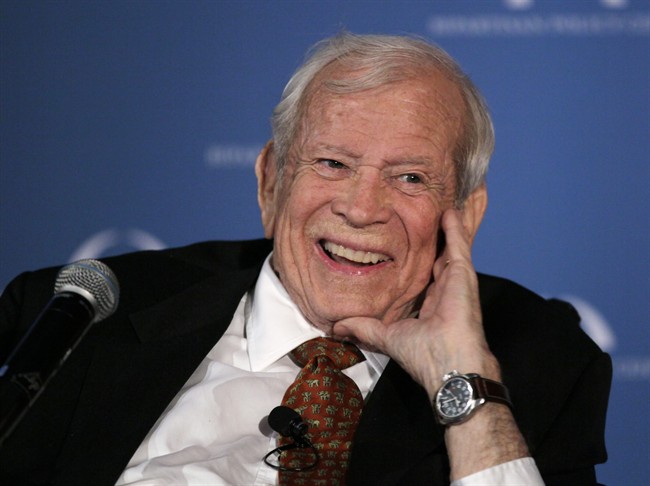WASHINGTON – Howard H. Baker Jr., a key senator during the Watergate investigation and a former U.S. ambassador to Japan, has died. He was 88.

Baker, who served in Tokyo from 2001 until early 2005, died Thursday at his home, according to an email distributed at the law firm where Baker was senior counsel. He died as a result of complications from a stroke suffered Saturday, the email said.
The scion of a political family, Baker served 18 years in the Senate, winning widespread respect from Republicans and Democrats alike and rising to the post of majority leader.
Baker was mentioned over the years as a possible vice-presidential candidate, Supreme Court justice or CIA director. He rejected them all.
He ran once for president, in 1980, and thought about it several other times. And he served as White House chief of staff in the waning days of the Reagan administration.
But it was his instantly famous question during Senate hearings in the summer of 1973- “What did the president know and when did he know it?” – that sliced to the core of the Watergate scandal and made him an enduring household name. It instantly focused attention on the coverup that perhaps more than the Watergate building break-in itself eventually brought down the Nixon presidency.
Repeated over and again in the senator’s mild Tennessee drawl, those words guided Americans through the tangle of Watergate characters and charges playing daily on TV to focus squarely on Richard Nixon and his role in the coverup.
Baker’s famous question has been dusted off for potential White House scandals big and small ever since.
It came as he was serving as vice chairman, and thus leading Republican, on the Senate committee probing the June 1972 break-in at the Democratic headquarters and the coverup by the Nixon administration.
Watergate, though it brought Baker national recognition, marked “the greatest disillusionment” of his political career, Baker said in a 1992 interview with The Associated Press.
“I believed that it was a political ploy of the Democrats, that it would come to nothing,” said Baker, who had seconded Richard Nixon’s nomination at the 1968 Republican convention. “But a few weeks into that, it began to dawn on me that there was more to it than I thought, and more to it than I liked.”
Baker, who served in a time when bipartisanship was more common in Washington, was Senate minority leader when he helped Democratic President Jimmy Carter win passage of the Panama Canal Treaty in 1978. Carter said at a 2011 symposium that Baker’s support for the divisive measure, which led to Panama regaining control of the passage, may have cost Baker the Republican nomination for president in 1980.
At the same symposium, Baker said he was still receiving letters every week from voters saying they would never forgive him for supporting the treaty.
“But that’s OK,” Baker said with a smile, “because I haven’t forgiven them either.”
He said he always considered his time as Senate majority leader, 1981 to 1985, the high point of his political career. He called it “the second-best job in town, only second to the presidency.”
Associated Press writers Donna Cassata and Alan Fram in Washington and Erik Schelzig in Nashville, Tennessee, contributed to this report.



Comments